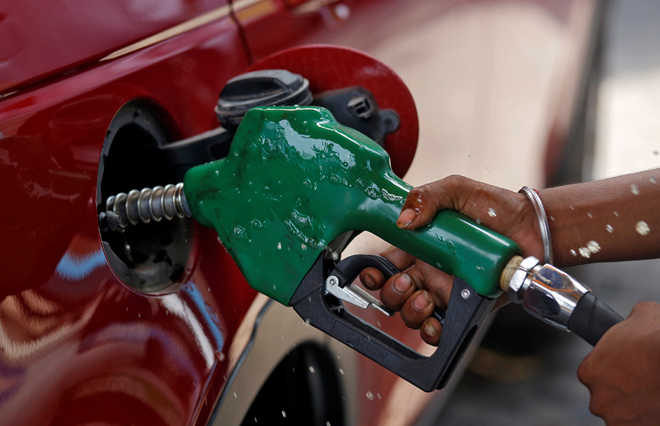
Crude oil prices have a direct bearing on petrol and diesel rates. About 90 per cent of the refining cost involves crude oil alone. In July 2008, when international oil prices had touched an all-time high at $142 per barrel, petrol and diesel were sold in the country at Rs 50.62 per litre and 34.86 per litre, respectively. Today, global crude oil prices are comparatively low, at around $80 per barrel, but fuel rates are at record levels — petrol is Rs 76.57 per litre and diesel Rs 67.82 a litre. Even after factoring in the massive subsidies of the UPA regime — about Rs 15 per litre on petrol and Rs 25 per litre on diesel — fuels were relatively cheaper a decade ago.
This incongruous pricing is because of the growing tax burden on petrol and diesel. A Delhi-based consumer pays about 47 per cent taxes on petrol and more than 37 per cent on diesel. In most of the other states these levies are higher. Both, the Centre and states have calculatedly kept petroleum products outside the GST purview because they are cash cows. Local levies on fuels vary from state to state. A permanent solution to this problem, however, lies in the inclusion of auto fuels under the GST. This move will uniformly cap taxes on petrol and diesel at a maximum of 28 per cent. This is not impossible considering the BJP is in power in 20 states.
The NDA government takes the credit for the fuel price reform, thanks to a steep decline in the international oil prices after the BJP came to power. Presumably, the long spell of lull in the global oil market also made the BJP government sanguine. As a result, it was caught unprepared ahead of the Karnataka Assembly elections. Under a tacit directive, state-run oil retailers froze the daily hike of petrol and diesel prices for almost three weeks, only to recover their losses with a vengeance. Instead of mopping benefits of low oil prices to achieve fiscal deficit targets, the government should have created a price stabilisation fund to shield consumers from the highly volatile international oil market. Another vital reform this sector requires is an explicable pricing mechanism.



























